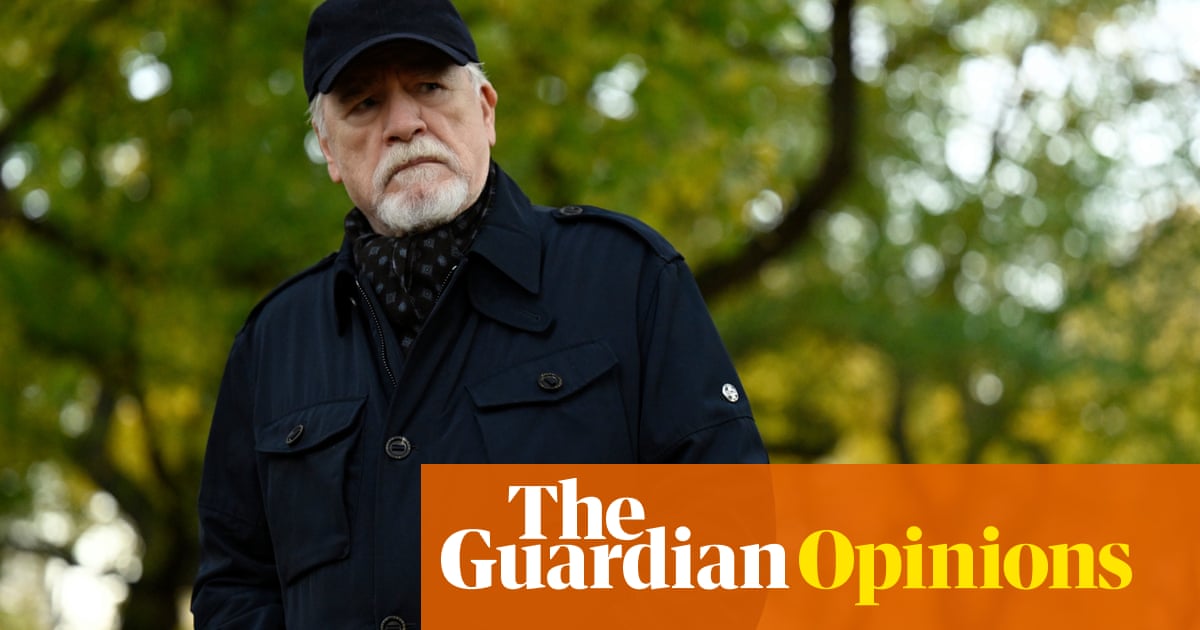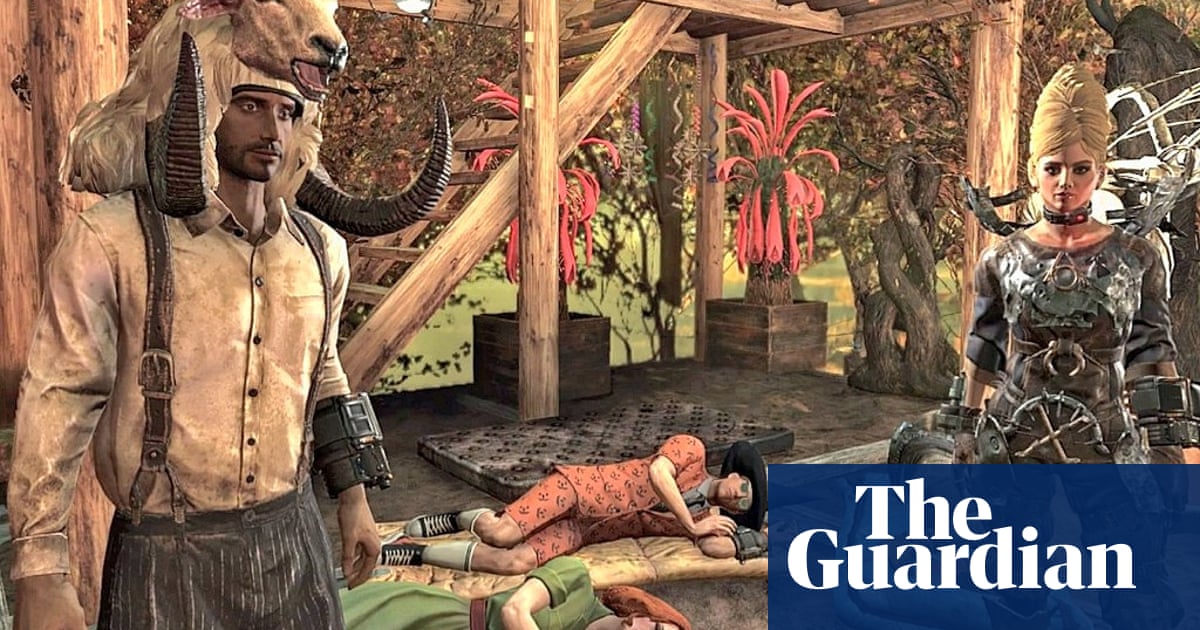
When Freddie Mercury jogged on to the stage at Live Aid, he knew he had the crowd in the palm of his hand. When comedian and radio host John Robins bursts on stage at London’s Bloomsbury theatre, he is wearing a T-shirt emblazoned with that image of Mercury – and the homage feels apt.
He isn’t about to perform Bohemian Rhapsody, but rather the live incarnation of Made Up Games, a segment from the weekly BBC Radio 5 Live show he hosts with fellow comedian Elis James. Nonetheless, the cheers from an enraptured crowd are deafening.
Robins and James met on the comedy circuit in 2005, fantasised about doing a radio show together, made it a reality in 2014, and in 2020, won gold for funniest show at the Aria awards.
Their weekly chatshow, also released as a podcast, was one of the first of its kind to go on tour, and they were the first to do a streamed gig during Covid. Now, tickets for their live shows sell out across the country within hours of going on sale. There are even whispers of a move to TV.
Live podcast shows are very much on the up. Compared with 2013, the number of events has gone up by 2,000%, no doubt helped along in the past year by the Covid-driven rise in podcasting’s popularity. In 2022, British people have listened to podcasts 40% more than they did before the pandemic, with fans keen to meet and interact with their heroes in person. From Deborah Frances-White’s The Guilty Feminist to James Acaster and Ed Gamble’s Off Menu, it seems the mark of success for a podcast or radio show now is whether or not it tours.
“The live shows have really lit a fire under us,” says comedian Stevie Martin. Along with fellow comic Tessa Coates, she hosts the hit podcast Nobody Panic, an audio guide to “being a functioning adult without screaming” – and has just enjoyed a residency at London’s Soho theatre. “It can be very insular in the studio, but doing the show live allows us to meet listeners and realise why we’re doing it all in the first place.
“It’s also expanding our listenership. People come on first dates then come back as partners, or come alone and leave having made friends. Others come to the show (or get dragged there by their girlfriends) having never heard of us and go on to become regular listeners.”
“We can be ruder and less censored in-person as well,” adds Coates, “which makes for a much rowdier night.” Back in Bloomsbury, Robins is explaining to his audience that there won’t be an interval. When he uses the phonetic alphabet to spell out “interval”, everyone laughs, knowingly. (Deploying the phonetic alphabet is so John). Then, in his intro, James begins repeatedly shouting the word “Argos”. It’s all fairly baffling if you haven’t listened to their show – but fortunately that isn’t an issue for the 500 people in attendance, who know full well that James is referencing the episode of their show from six months ago when he breached BBC guidelines by naming the catalogue retailer on air. He shouts, “WELL WE ALL KNEW IT WAS ARGOS,” and brings their cheers to a thundering climax.
Their show has been on air since 2014, when it started life on XFM (now Radio X) before moving to 5 Live in 2019. Since its genesis, it has gained a cult following – so much so that they have an online shop offering merchandise bearing their catchphrases and in-jokes, and a Facebook group for devotees that, at the time of writing, has 18,000 members. But how did a weekly radio show on an indie station turn into a sellout live tour?
“John used to do this thing where he read out chapters of his autobiography, A Robins Amongst the Pigeons,” James says.
“The thing that made us realise we might be able to transition to the stage was an experimental version we did at a pub. The venue only holds 160, but tickets sold out in half an hour. Listening to a podcast is a very intimate experience, but it’s all one-way traffic. We had been in people’s ears for years, and now they wanted to be in a room with us.”
Poppy Jay and Rubina Pabani, the voices behind hit podcast Brown Girls Do It Too, had a similar experience. When asked about their route to launching a live show, they wryly say it all started with “a white man sliding into their DMs”. The man in question was a podcast producer, who put them together “like the brown Spice Girls”.
“We aren’t from the live or theatrical world, so we didn’t know the rules we were breaking, and our live shows turned into very interactive experiences – a dialogue between us and the audience, mixed in with songs, sketches and improv,” says Jay.
Pabani adds that as south-Asian women, with a largely south-Asian listenership, they feel a degree of responsibility. “A lot of women are coming to our live shows in secret so they can meet other brown women who want to talk about sex and relationships. We’ve had women quietly come up to us in the bar after shows, wanting to confide in us about their personal lives.”
It is candour and authenticity that has endeared listeners to Robins and James, too. Theirs is a traditional radio show in that it has regular features involving guests and listener participation, but apart from that it sounds much like an unscripted dialogue between two friends.
“There’s something about male friendship,” Robins muses. “You don’t see a lot of male friendships – and if you do it’s often that awful frat boy banter. To hear two men who try to be as inclusive as possible in their language, and can really take the piss out of each other but not in a belittling way, is rare. I think more male friendships are like ours than you’d think, when they’re one-on-one.”
When asked why Brown Girls Do It Too has meant so much to people, Pabani pauses and then sums it up: “People feel they have a relationship with us, so they come to the show to see us, but really they come to see themselves reflected back.”
After the collective trauma of Covid, it is perhaps no surprise that shows combining self-reflection with levity are a huge draw for audiences.
Next year more live audio shows are planned than ever, and big-hitters such as Rob Beckett and Josh Widdicombe’s Parenting Hell, and Chris and Rosie Ramsey’s Shagged. Married. Annoyed already selling out arenas.
John Robins’ T-shirt said it all. Radio: you’ve yet to have your finest hour.












